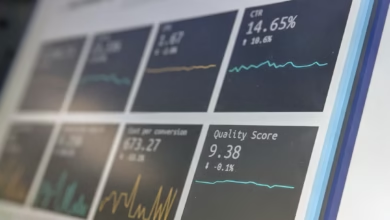Mastering Derivatives Trading: Essential Strategies and Risk Management for Successful Financial Contracts

Derivatives trading has become an essential component of the modern financial landscape, offering traders a wide array of opportunities to capitalize on market movements without directly owning the underlying assets. By engaging in this dynamic form of trading, individuals can explore various financial contracts, such as options, futures, and CFDs, that derive their value from assets like stocks, commodities, or indices. In an era where online trading platforms have made derivatives trading more accessible, understanding the key concepts and types of contracts is crucial for both novice and experienced traders alike.
This article delves into the intricacies of derivatives trading, covering essential topics such as the various types of financial contracts available, from options trading to high-frequency trading. We will explore effective trading strategies, including day trading, swing trading, and algorithmic trading, that can enhance your trading performance. Additionally, we will address the importance of risk management and trading psychology, equipping you with the tools needed to navigate the challenges of the derivatives market. Whether you are involved in forex trading, crypto trading, or energy trading, our comprehensive guide will provide valuable insights to help you make informed trading decisions.
- 1. Understanding Derivatives Trading: Key Concepts and Types of Financial Contracts
- 2. Essential Trading Strategies: From Options Trading to High-Frequency Trading
- 3. Risk Management and Trading Psychology: Navigating the Challenges of Derivatives Trading
1. Understanding Derivatives Trading: Key Concepts and Types of Financial Contracts
Derivatives trading refers to the practice of buying and selling financial contracts that derive their value from an underlying asset. Understanding the key concepts and types of financial contracts is essential for traders who wish to navigate this complex market effectively.
At its core, derivatives trading can involve various forms of contracts, including options, futures, and contracts for difference (CFDs). Each of these types serves a unique purpose and offers different trading strategies, such as options trading for hedging or speculation and futures trading for locking in prices.
Options are contracts that provide the buyer the right, but not the obligation, to purchase or sell an underlying asset at a predetermined price before a specified expiration date. This flexibility allows traders to implement various strategies, whether they are engaging in day trading, swing trading, or longer-term investments.
Futures contracts, on the other hand, obligate the buyer to purchase, and the seller to sell, an asset at a predetermined price at a specified future date. Futures trading is commonly used in commodities trading, energy trading, and index trading, allowing traders to speculate on price movements or hedge against price fluctuations.
In addition to these common derivatives, there's also a growing interest in crypto trading, where digital currencies are traded through derivatives such as futures and options. This expansion into crypto markets has opened new avenues for traders looking to diversify their portfolios.
Derivatives trading often involves the use of leverage and margin trading, allowing traders to control larger positions with a smaller amount of capital. While this can amplify profits, it also increases risk, making risk management a critical component of any trading strategy. Effective market analysis, whether through technical analysis or fundamental analysis, can help traders make informed decisions.
Furthermore, trading psychology plays a vital role in derivatives trading. Understanding one’s emotional responses to market fluctuations can greatly influence trading outcomes. Traders need to develop a disciplined approach to avoid impulsive decisions that can lead to significant losses.
In recent years, online trading platforms have made derivatives trading more accessible, enabling various forms of trading strategies, including algorithmic trading and high-frequency trading. Social trading and copy trading have also gained popularity, allowing novice traders to learn from experienced ones.
In summary, understanding the fundamental types of financial contracts and their applications is crucial for anyone interested in derivatives trading. By mastering these concepts, along with effective trading strategies and risk management techniques, traders can enhance their chances of success in the dynamic world of trading.
2. Essential Trading Strategies: From Options Trading to High-Frequency Trading
When it comes to derivatives trading, employing essential trading strategies is crucial for success. These strategies can vary widely, catering to different trading styles and risk appetites. Below, we explore some of the most prominent trading strategies, including options trading, high-frequency trading, and more.
One of the foundational strategies in derivatives trading is options trading. This involves purchasing contracts that grant the buyer the right, but not the obligation, to buy or sell an underlying asset at a predetermined price. Traders utilizing options can leverage their positions while managing risk effectively. This strategy can complement various trading styles, such as day trading or swing trading, allowing traders to capitalize on price movements while limiting potential losses.
Futures trading is another popular strategy that involves agreements to buy or sell an asset at a future date at an agreed-upon price. This is particularly common in commodities trading and energy trading, where traders seek to hedge against price fluctuations. The leverage involved in futures trading can amplify both profits and losses, making it essential for traders to implement robust risk management practices.
High-frequency trading (HFT) represents a more advanced approach, utilizing algorithms and high-speed data networks to execute numerous trades in fractions of a second. This type of algorithmic trading relies on sophisticated market analysis and technical analysis to exploit small price discrepancies. While HFT can be lucrative, it requires substantial capital and expertise, making it less accessible for novice traders.
For those looking to engage in more hands-on strategies, day trading and swing trading are popular choices. Day trading involves buying and selling assets within the same trading day, capitalizing on short-term market movements. Conversely, swing trading focuses on holding positions for several days or weeks to capture larger price shifts. Both strategies demand a solid understanding of trading psychology and market analysis to navigate the inherent volatility.
Copy trading and social trading have emerged as innovative options, enabling less experienced traders to mimic the trades of seasoned professionals. This approach can be beneficial in forex trading, crypto trading, and stock trading, allowing novice traders to learn while participating in the market.
Scalping is yet another strategy, involving quick trades to exploit minor price changes. This method requires a keen understanding of market dynamics and the ability to make rapid decisions, often utilizing margin trading to amplify returns.
In summary, the world of derivatives trading encompasses a diverse array of strategies, from options trading and futures trading to high-frequency trading and scalping. Each strategy carries its own set of risks and rewards, necessitating effective risk management and diligent market analysis. By understanding and applying these trading strategies, traders can enhance their chances of success in the dynamic landscape of derivatives trading.
References:
– Hull, J. C. (2018). Options, Futures, and Other Derivatives. Pearson.
– Chan, E. (2013). Algorithmic Trading: Winning Strategies and Their Rationale. Wiley.
– Murphy, J. J. (1999). Technical Analysis of the Financial Markets. New York Institute of Finance.
3. Risk Management and Trading Psychology: Navigating the Challenges of Derivatives Trading
Risk management and trading psychology are critical components of successful derivatives trading, as they help traders navigate the complexities and volatility associated with financial contracts derived from underlying assets. Unlike traditional stock trading or forex trading, derivatives trading can involve higher levels of risk due to the use of leverage and margin trading strategies. Understanding how to manage these risks is essential for both novice and experienced traders.
One of the primary challenges in derivatives trading is the emotional aspect that comes into play. Trading psychology can significantly influence decision-making, often leading to impulsive actions based on fear or greed. For example, during periods of high volatility in options trading or futures trading, traders may overreact and deviate from their established trading strategies. This can result in substantial financial losses if proper risk management techniques are not employed.
To mitigate these challenges, traders should implement a robust risk management framework. This includes setting stop-loss orders, which can help limit potential losses in day trading or swing trading scenarios. Additionally, utilizing position sizing techniques ensures that no single trade can significantly impact a trader's overall portfolio. This is particularly important in high-frequency trading or algorithmic trading, where rapid trades can amplify risks.
Furthermore, comprehensive market analysis—both technical analysis and fundamental analysis—can enhance a trader's ability to make informed decisions. By understanding market trends and underlying asset movements, traders can better anticipate price fluctuations and adjust their strategies accordingly. This analytical approach is crucial in various trading forms, including commodities trading, index trading, and crypto trading.
Incorporating trading strategies that focus on risk management can also foster a disciplined trading environment. For instance, traders involved in copy trading or social trading can learn from successful peers while adhering to their risk management principles. Additionally, those engaged in arbitrage trading must be meticulous in their analysis to capitalize on price discrepancies without exposing themselves to undue risk.
Ultimately, navigating the challenges of derivatives trading requires a balance between effective risk management and the right trading psychology. By developing a strong mindset and employing sound trading strategies, traders can increase their chances of success in the dynamic world of derivatives, whether they are participating in ETF trading, binary options, or energy trading.
References:
– Black, F., & Scholes, M. (1973). The pricing of options and corporate liabilities. Journal of Political Economy, 81(3), 637-654. [Link to the article]
– Hull, J. C. (2017). Options, Futures, and Other Derivatives (10th ed.). Pearson. [Link to the book]
– CFTC. (2021). Understanding Futures and Options. Commodity Futures Trading Commission. [Link to the resource]
In conclusion, derivatives trading presents a dynamic landscape for traders seeking to diversify their portfolios and capitalize on market fluctuations. By understanding key concepts and different types of financial contracts, such as options trading, futures trading, and CFDs, traders can make informed decisions that align with their investment goals. Implementing essential trading strategies, whether through day trading, swing trading, or high-frequency trading, can help maximize profit potential while navigating the complexities of the market.
However, successful trading requires a robust approach to risk management and a keen awareness of trading psychology. By mastering technical analysis and fundamental analysis, traders can better anticipate market movements and mitigate potential losses. Leveraging online trading platforms, traders can engage in various forms of trading, from commodities trading and index trading to crypto trading and energy trading, all while utilizing strategies like arbitrage trading and copy trading to enhance their performance.
Ultimately, whether you are venturing into forex trading, scalping, or binary options, being well-versed in the nuances of derivatives trading will empower you to navigate this complex market more effectively. As you continue to refine your trading strategies and adapt to changing market conditions, remember that a disciplined approach to risk management and a solid grasp of trading psychology will be key to your long-term success in the world of derivatives trading.





